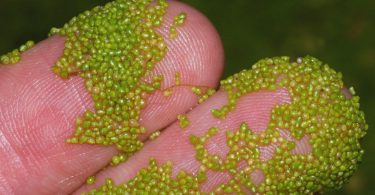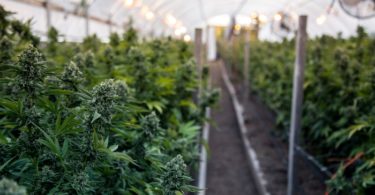China has licensed a massive cannabis farm covering almost 100 square kilometers in southwestern Yunnan province as it prepares to cash in on growing demand from countries decriminalizing the drug. It is believed China already supplies 50% of global cannabis output.
Conba Group, a publicly-listed pharmaceutical company, will cultivate three separate plantations, according to the National Business Daily, and last month reached agreement with CannaAcubed Pte for the planting, extraction, processing and packaging of industrial cannabis.
The licensing agreement allows cultivation for both industrial and medical uses, and Conba said in a bourse filing that it had already signed seed supply contracts with domestic and overseas suppliers. China permits cultivation of cannabis only for traditional medicines and textiles: most is of industrial hemp quality, high in fiber and with only a low amount of the psychoactive compound tetrahydrocannabinol (THC).

Nonetheless, China is in a better position than any other country to meet the expected upsurge in demand as the consumption of cannabis for medicinal and recreational use becomes more widespread. The only nation known to have scientifically researched and tested cannabis in field conditions, China held 309 of the 606 patents filed with the World Intellectual Property Organization as of 2017, the latest available figures.
It has ideal growing conditions in subtropical Yunnan and has been cultivating the drug since at least 10,000 BC for both industrial products and consumption. No other country boasts so many scientists and processing factories with experience in cannabis applications.
But there is a catch. Handling of the drug in any form in China without approval is strictly prohibited, and Beijing may not want to risk switching to psychoactive strains if it could encourage local consumption. Chinese criminal law states that “individuals who smuggle, traffic, transport or manufacture narcotic drugs are sentenced to either 15 years of prison, life imprisonment or death, and suffer confiscation of property”.
Another problem is that the crop traditionally has been associated with the minority Muslim Uyghur population, who are being subjugated by the central government and have responded with insurgency attacks. Although crops are now being planted elsewhere, the Uyghur are recognized as having the longest history of cultivation.
The licensing of a farm covering 100 square kilometers is a strong indicator that China intends to put its economic interests first in what is likely to become a multi billion-dollar industry within the next decade.
More at: Asiatimes.com







Hi, what’s your take on Medmen (mmnff) ? Will they ever recover ?
Thanks,
Harry